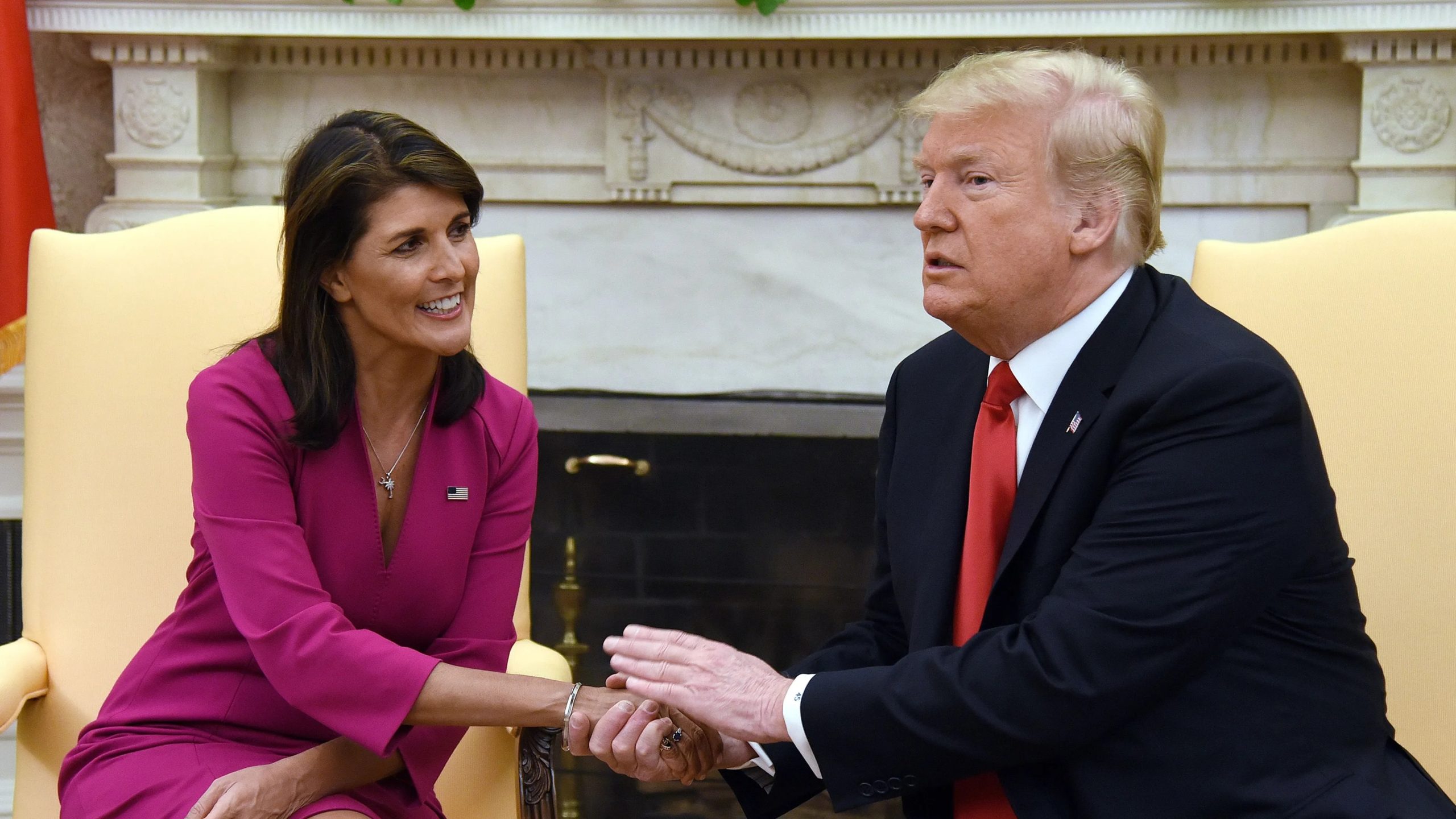Since the 2016 election, Donald Trump’s Republican challengers have clung to the belief that a one-on-one contest would give them a fighting chance.
However, for Nikki Haley, the former U.N. ambassador and a contender in the GOP primaries, the dynamics are proving more complex.
Her campaign underscores a broader challenge faced by Trump’s opponents, revealing that the stumbling block isn’t merely a matter of candidate math but a fundamental shift in the ideological landscape within the MAGA-centric GOP.

Haley’s campaign is caught in a challenging environment marked by a bear market for fiscal conservative and neoconservative ideology within a party increasingly shaped by Trump’s populist approach.
Alex Conant, a Republican strategist with experience advising Marco Rubio and Tim Pawlenty in previous presidential campaigns, points to the contrast in messaging between Haley, who positions herself as a conservative, and Trump, who embraces a populist agenda.
According to Conant, the Republican Party is undergoing a transformation into a more populist entity, posing a challenge for candidates like Haley rooted in pre-Trump conservative principles.
The roots of Haley’s political ascent lie in her identification as a tea party favorite, aligned with a pre-Trump conservative ideology that emphasized principles such as tax cuts, deregulation, and free trade.
Despite this background, Haley’s current campaign sees her leaning into these traditional conservative values, advocating for the U.S. to “take out” Iranian leaders supporting specific groups and endorsing the idea of raising the retirement age as a means to enhance Social Security’s solvency.
Her approach also involves capitalizing on the fallout from Trump’s second E. Jean Carroll defamation trial, framing it as a pro-family referendum. In doing so, Haley adopts a strategy reminiscent of 1990s-era presidential primaries, using character attacks on a rival, in this case, Trump.
However, the odds seem stacked against Haley, as Trump has effectively shifted the GOP’s focus away from traditional conservative tenets, urging voters to reconsider their emphasis on tax cuts, deregulation, and free trade.
The prevailing sentiment within the Republican Party is now more aligned with Trump’s populist agenda, making it challenging for candidates like Haley, who continue to champion a fading conservative ideology.
Haley’s seemingly longshot campaign reflects an attempt to revive the embers of a conservatism that appears on the brink of extinction in the current political landscape.
Trump’s influence since 2016 has reshaped Republican priorities, urging a departure from traditional conservative values and pushing for a more populist orientation, creating a challenging terrain for contenders who hark back to the pre-Trump era.


